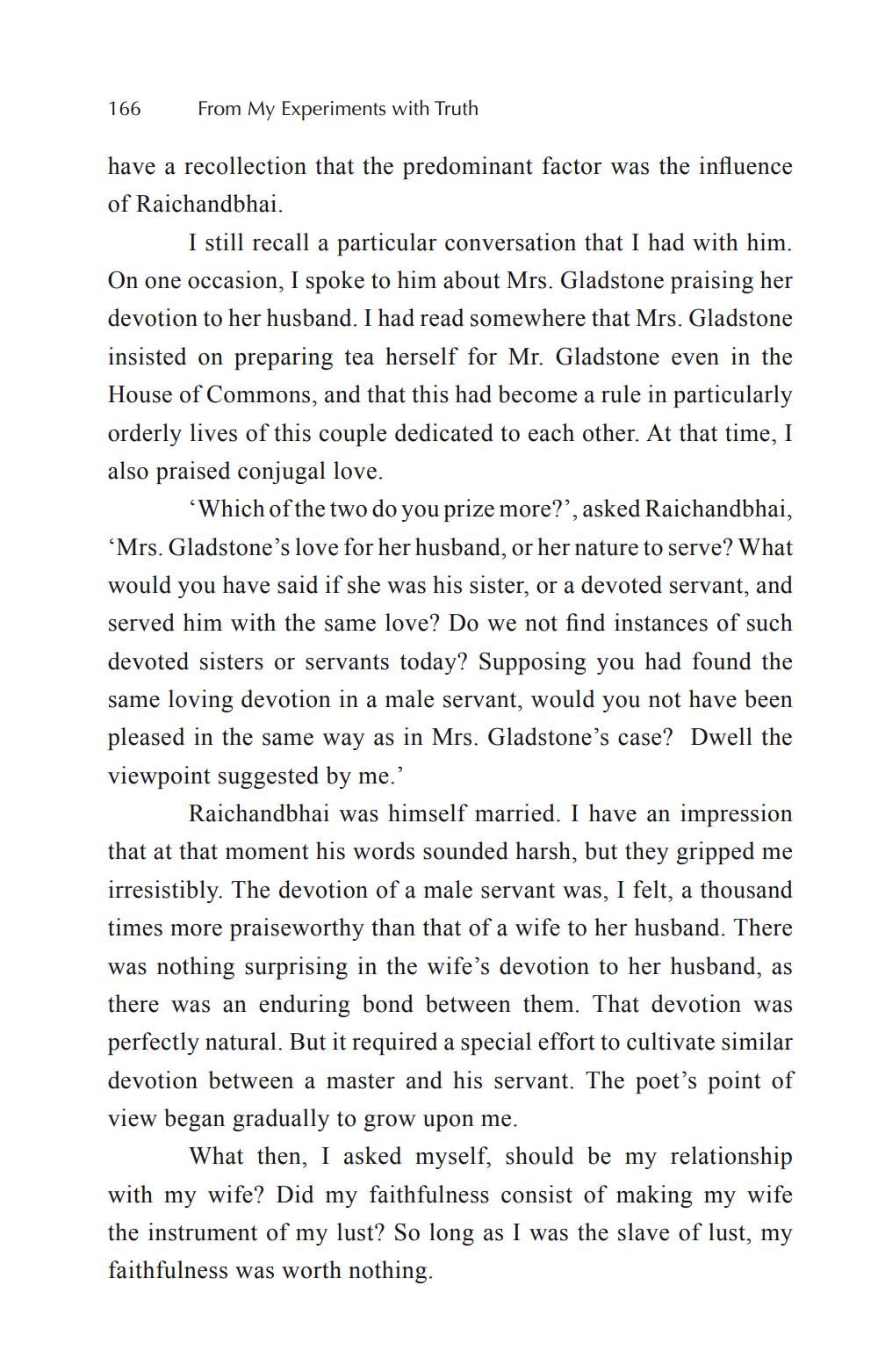________________ 166 From My Experiments with Truth have a recollection that the predominant factor was the influence of Raichandbhai. I still recall a particular conversation that I had with him. On one occasion, I spoke to him about Mrs. Gladstone praising her devotion to her husband. I had read somewhere that Mrs. Gladstone insisted on preparing tea herself for Mr. Gladstone even in the House of Commons, and that this had become a rule in particularly orderly lives of this couple dedicated to each other. At that time, I also praised conjugal love. "Which of the two do you prize more?', asked Raichandbhai, "Mrs. Gladstone's love for her husband, or her nature to serve? What would you have said if she was his sister, or a devoted servant, and served him with the same love? Do we not find instances of such devoted sisters or servants today? Supposing you had found the same loving devotion in a male servant, would you not have been pleased in the same way as in Mrs. Gladstone's case? Dwell the viewpoint suggested by me.' Raichandbhai was himself married. I have an impression that at that moment his words sounded harsh, but they gripped me irresistibly. The devotion of a male servant was, I felt, a thousand times more praiseworthy than that of a wife to her husband. There was nothing surprising in the wife's devotion to her husband, as there was an enduring bond between them. That devotion was perfectly natural. But it required a special effort to cultivate similar devotion between a master and his servant. The poet's point of view began gradually to grow upon me. What then, I asked myself, should be my relationship with my wife? Did my faithfulness consist of making my wife the instrument of my lust? So long as I was the slave of lust, my faithfulness was worth nothing.




